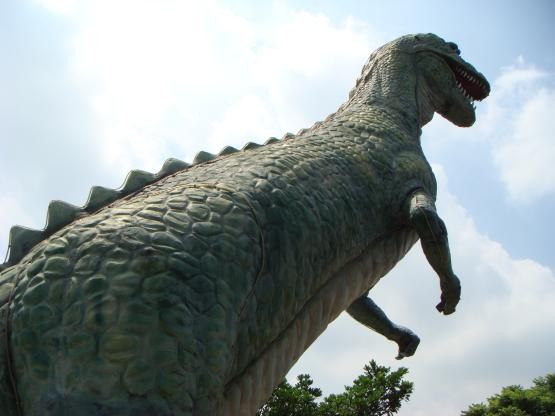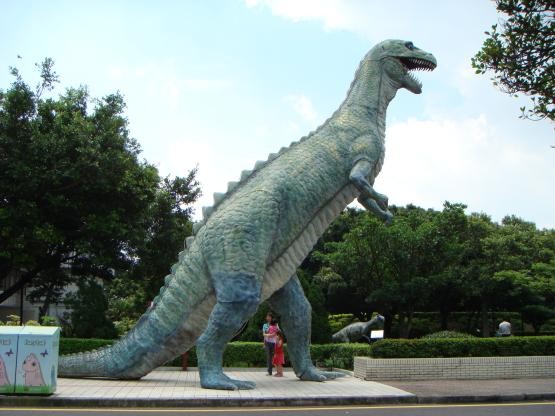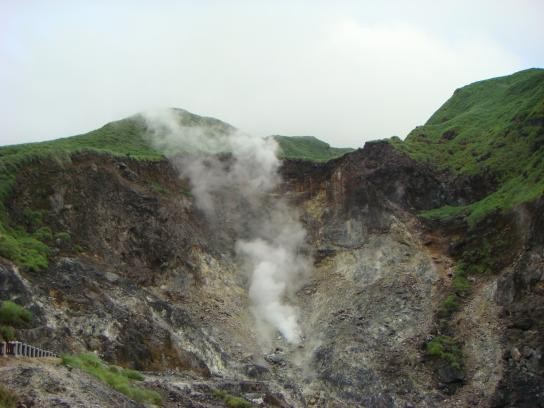Bible Background: Num 13, 14, Josh 14
Introduction
In the Old Testament, Canaan was the promised land of the Israelites. The Bible calls Canaan the land of milk and honey because it was good and spacious.
Today, a place in the heavenly kingdom is also promised to believers. It is a place of blessing,filled with the abidance of God.
The kingdom of God can be now or the next day.
Yet, a lot of us stand at the edge, not wanting to go in.
We know it’s a good land, but many giants stand in the way.
We don’t know what giants we will face today.
Perhaps they will consist of challenges in our family,
our finances, being a good witness for the Lord,
or overcoming temptation and sin.
We will find that every promised land has giants. We must face the giants first (before we can enter).
When mentioning giants, many people will automatically think of David and Goliath. However,
there is another giant slayer before David.
His name is Caleb.

Caleb didn’t slay giants when he was young, but when he was 85 years old.
Who is Caleb?
Caleb was an Israelite from the tribe of Judah.
He was one of the ½ million that God delivered out of Egypt.
Moses was the leader at the time,
and God promised them the land of Canaan.
Caleb and Moses
In Numbers 13, the Israelites came to Kareth
and found themselves standing on the edge of the promised land. Moses selected 12 spies to go into the land,
and Caleb was chosen as one of them.
The spies spent 40 days exploring the land
and came back with the evidence
that it was a land flowing with milk and honey.
They even brought back a cluster of grapes
that was so big that two people had to carry it.
Num. 13:27-29 records:
They gave Moses this account: ”We went into the land to which you sent us, and it does flow with milk and honey! Here is its fruit. 28 But the people who live there are powerful,
and the cities are fortified and very large.
We even saw descendants of Anak there. 29
The Amalekites live in the Negev; the Hittites, Jebusites and Amorites live in the hill country;
and the Canaanites live near the sea and along the Jordan.”
V. 30 is Caleb’s own account of the trip:
Num 13:30
“Then Caleb silenced the people before Moses and said,
”We should go up and take possession of the land,
for we can certainly do it.”
V. 31-33 contains the other spies’ response:
31 But the men who had gone up with him said,
”We can’t attack those people;
they are stronger than we are.” 32
And they spread among the Israelites a bad report about the land they had explored.
They said,
”The land we explored devours those living in it.
All the people we saw there are of great size. 33
We saw the Nephilim there
(the descendants of Anak come from the Nephilim).
We seemed like grasshoppers in our own eyes,
and we looked the same to them.”
The reports show that everything was giant-sized, like the fruit. This tells us that sometimes our blessings are so big that it takes more work to attain them.

Joshua and Caleb tried to convince the people to follow the Lord.
Num 14:6-9 “Joshua son of Nun and Caleb son of Jephunneh,
who were among those who had explored the land,
tore their clothes 7 and said to the entire Israelite assembly,
”The land we passed through and explored is exceedingly good. 8
If the LORD is pleased with us, he will lead us into that land,
a land flowing with milk and honey, and will give it to us. 9
Only do not rebel against the LORD.
And do not be afraid of the people of the land,
because we will swallow them up.
Their protection is gone, but the LORD is with us.
Do not be afraid of them.”

Unfortunately, the Israelites didn’t listen to Caleb.
Instead, they complained at the edge of Canaan.
People were hard-hearted in their decision
and rebelled against God.
As punishment, all males over 20 perished in the wild.
The Israelites also had to wander in the wilderness for 40 years.
Caleb at the age of 85
Forty years later, we see Caleb in Joshua 14.
By then, all the older adult males had died,
and a new generation had arisen.
Moses had passed away and Joshua was in his place.
Joshua led the people to fight the armies of Canaan
and divided the land.
After 45 years, let’s see how Caleb was doing:
Josh 14:6-14 6 Now the men of Judah approached Joshua at Gilgal, and Caleb son of Jephunneh the Kenizzite said to him,
”You know what the LORD said to Moses the man of God at Kadesh Barnea about you and me. 7
I was forty years old when Moses the servant of the LORD sent me from Kadesh Barnea to explore the land. And I brought him back a report according to my convictions, 8
but my brothers who went up with me made the hearts of the people melt with fear.
I, however, followed the LORD my God wholeheartedly. 9
So on that day Moses swore to me,
’The land on which your feet have walked will be your inheritance and that of your children forever, because you have followed the LORD my God wholeheartedly.’
10 ”Now then, just as the LORD promised, he has kept me alive for forty-five years since the time he said this to Moses,
while Israel moved about in the desert.
So here I am today, eighty-five years old! 11
I am still as strong today as the day Moses sent me out;
I’m just as vigorous to go out to battle now
as I was then. 12
Now give me this hill country that the LORD promised me that day. You yourself heard then that the Anakites were there
and their cities were large and fortified,
but, the LORD helping me, I will drive them out just as he said.”
13 Then Joshua blessed Caleb son of Jephunneh and gave him Hebron as his inheritance. 14
So Hebron has belonged to Caleb son of Jephunneh the Kenizzite ever since,
because he followed the LORD, the God of Israel, wholeheartedly.”
Here, Caleb was 84 and still eyeing the land.
Basically, he’s saying, “I want this land. Giants are nothing.”

From Caleb, we can learn three teachings regarding how we face our giants.
(1)
Caleb followed the Lord wholeheartedly
(Caleb anticipated difficulty)
Caleb knew it was not easy going into the promise land.
God did not promise to give the land easily. In Exodus 13,
he actually lists the tribes in the land.
However, Caleb was ready to follow the Lord
no matter how difficult the journey could be.
The Israelites had expectations contrary to the will of God
As we study the Israelites’ journey through the wilderness,
we see them encounter many trials.
When they left Egypt, they had faith.
Unfortunately, their expectations were not according to the will of God. Every time they encountered an obstacle,
they wanted to go back to Egypt,
even though they saw great miracles such as the 10 plagues
and the division of the Red Sea, which were giant-sized obstacles. Even when they had no food in the wild, God gave them food.
Still, they lingered at the edge of the promised land,
wanting to go back to Egypt and be slaves.
(2)(Caleb trusted God)
It is human nature to want to choose the harder path of life
as long as we can control the situation.
That’s why the Israelites would rather be slaves
and know what was coming to them.
Trusting God is to realize that life is often out of our control.
If we follow God with all our heart, we will realize that there’s nothing in the world we can control. Perhaps this is difficult to accept. As Christians, we need to know that
God never promised an easy life.
He doesn’t tell us that life will be fair.
He certainly will not take away giant-sized promises
unless we do something first.
(3)(Caleb obeyed God)
Israelites did not obey God
Num 14:20-24 “ 20 The LORD replied,
”I have forgiven them, as you asked. 21
Nevertheless, as surely as I live and as surely as the glory of the LORD fills the whole earth, 22
not one of the men who saw my glory and the miraculous signs I performed in Egypt and in the desert but who disobeyed me and tested me ten times- 23
not one of them will ever see the land I promised on oath to their forefathers.
No one who has treated me with contempt will ever see it. 24
But because my servant Caleb has a different spirit and follows me wholeheartedly, I will bring him into the land he went to, and his descendants will inherit it.”

An estimated 680,000 men came out of Egypt. None but two ended up entering the land. Everyone else spent their lives wandering in the wilderness until their lives were taken.
Even though God forgave them, they lived their lives without receiving the blessing.
They were truly so close to obtaining the promise,
but saw giants and could not follow God into the land.
We need to ask ourselves -How many blessings have we missed because we have not followed God whole-heartedly?
If we continue to follow our own way, we won’t know how many opportunities for blessings we will lose.
Those men over 20 years old lost the opportunity of the greatest blessing because of a decision.
Caleb whole-heartedly obeyed God
Only Caleb and Joshua understood
that the ultimate blessing comes from obedience.
As Psalm 119:2 tells us,
“Blessed are they who keep his statutes
and seek him with all their heart.”
Caleb knew that life was a long (opportunity) to follow God with all his heart. He knew he would go into the land. After 45 years,
he was 85 years old and had the same faith.
At the end, he was able to defeat the giants
and take claim to God’s promises.
Caleb had God’s perspective of the giants
Perspective makes a difference
The same situation can be magnified to be very large, or seen to be very small.
Example: There’s a story of a college student
who was very clever and used her cleverness to her advantage.
She tried to figure out a way to tell her parents bad news,
so she wrote a letter,
“Dear Mom and Dad, I’m just letting you know about the current situation. I fell in love with a guy named Jim,
who left school at the 11th grade.
He got married last year but then got a divorce.
We’ve been dating for 9 months and plan to get married in the fall. I decided to move in with him. At this rate, I think I’ll drop out of school, too, but maybe I’ll pick it up again when our baby is grown up.” On the next page, the student wrote, “everything written before this is false, but I got a “C” in math and am close to flunking. I also need more money.”
The student used perspective to change the situation.
Originally, the parents were in great shock.
Then, the shock turned to relief before the bad news was delivered.
Caleb vs. 10 spies
Perspective of 10 spies
The other spies said in Num 33:3,
”We saw the Nephilim there (the descendants of Anak come from the Nephilim). We seemed like grasshoppers in our own eyes, and we looked the same to them.” They saw the giants through their own eyes thought, “with one stomp, we will die.”
Caleb’s perspective
Caleb was different. In Num 14:9, Caleb said,
“Only do not rebel against the LORD,
nor fear the people of the land,
for they are our bread; their protection has departed from them,
and the LORD is with us. Do not fear them.”
Here, the NKJV version calls the giants “bread.”
We can say Caleb thought it was “a piece of cake.”
Caleb was very confident of their victory,
just as the 10 spies were confident of their defeat.
What was the difference? Caleb believed that the Lord was with them. Caleb viewed the giants from God’s perspective.
thers measured with their own strength and potential.
Perspective of God
Caleb never lost God’s perspective.
45 years after seeing Canaan, Caleb was ready to take the land and drive out the giants. His attitude was, “I am ready.” He never lost the perspective of God.
What perspective do we use today? We should know that God can divide the seas for his people and easily deliver us from troubles.
Giant-size challenges are grasshoppers in God’s sight.
Do we allow giant-sized challenges to distract our focus on God?
Example of focus: In the 1950’s, there was a swimmer named Florence Chadwick. She broke the time records for distance and time and swam back and forth the English Channel 3-4 times. There was one time she couldn’t succeed because she lost focus trying swim from Catalina to the coast of California (22 miles). This distance wasn’t even as far as what she was used to swimming. However, she had to fight to overcome the cold and the dense fog. The fog was so thick that she could not see the 2 boats next to her that carried her trainer and her mother. She kept on going and going but couldn’t see when it was going to end. She finally came to the point to say “I give up.” This was the time before GPS and her mother and trainer kept on encouraging her that the coast was not far away. Still, she quit and find out the shore line was only a half mile from where she was. Because of the fog, she couldn’t focus on her destination.

Fix our eyes on Jesus
Heb 12:2 tells us, “looking unto Jesus, the author and finisher of our faith, who for the joy that was set before Him endured the cross, despising the shame, and has sat down at the right hand of the throne of God.”
We need to fix our eyes on Jesus when we run the race of life. We should not focus on the giants in our lives, but look at them from God’s perspective. If we focus on how great God is, we will see that God is mighty and giants are small.
Caleb went into battle
Caleb went in and drove out giants
Josh 15:14 “Caleb drove out the three sons of Anak from there: Sheshai, Ahiman, and Talmai, the children of Anak.”
What about us?
Many never expect victory in overcoming giants because they never truly go into battle. They are a lot like the Israelites that stand on the edge, hoping that one day the giants will move away.
Our church faces giant-sized challenges as well. I believe the challenges are placed by God to show us how to be victorious, and how God can be glorified in the process. God gave this church truth, led us, and showed us the promised land. He didn’t show other religions or denominations. We are chosen instruments of God.
Today, we see many giant-sized challenges in our way. We may think,
There are so many people in the world, how is it possible we preach to them?
What can one person do?
Other people in church will do it.
We have to remember that victory does not come from our end. We just need to follow God whole-heartedly. We don’t need to worry how big the giants are or being victorious, but we need to take the steps to go into battle. Then, God will give us victory.
(Step away from the sidelines)
We cannot defeat challenges or our fear of preaching by standing aside. This is a command that the Lord has given to all who listens. But we cannot do so without preparing ourselves by praying and reading the Bible. If we never step into battle, how can God give us victory?
As individuals, we all have giant-sized challenges. We cannot expect to overcome them if we refuse to make a stand for God. If we refuse to protect ourselves from things that make us weak, if we refuse to step into battle with the flesh now, how can we expect God to give us victory?

Conclusion
Many Israelites perished in the wilderness without ever tasting the richness of God. They never stepped into the promised land prepared by God. I hope that everyone can step into the battle with God. We should not see things with our own perspective, but from God’s perspective. From God’s perspective, everything is the size of a grasshopper. If we follow God whole-heartedly, we will discover that “every battle is a God-given opportunity for victory.”
文章定位:
人氣(373) | 回應(0)| 推薦 (
0)| 收藏 (
0)|
轉寄
全站分類:
不分類



